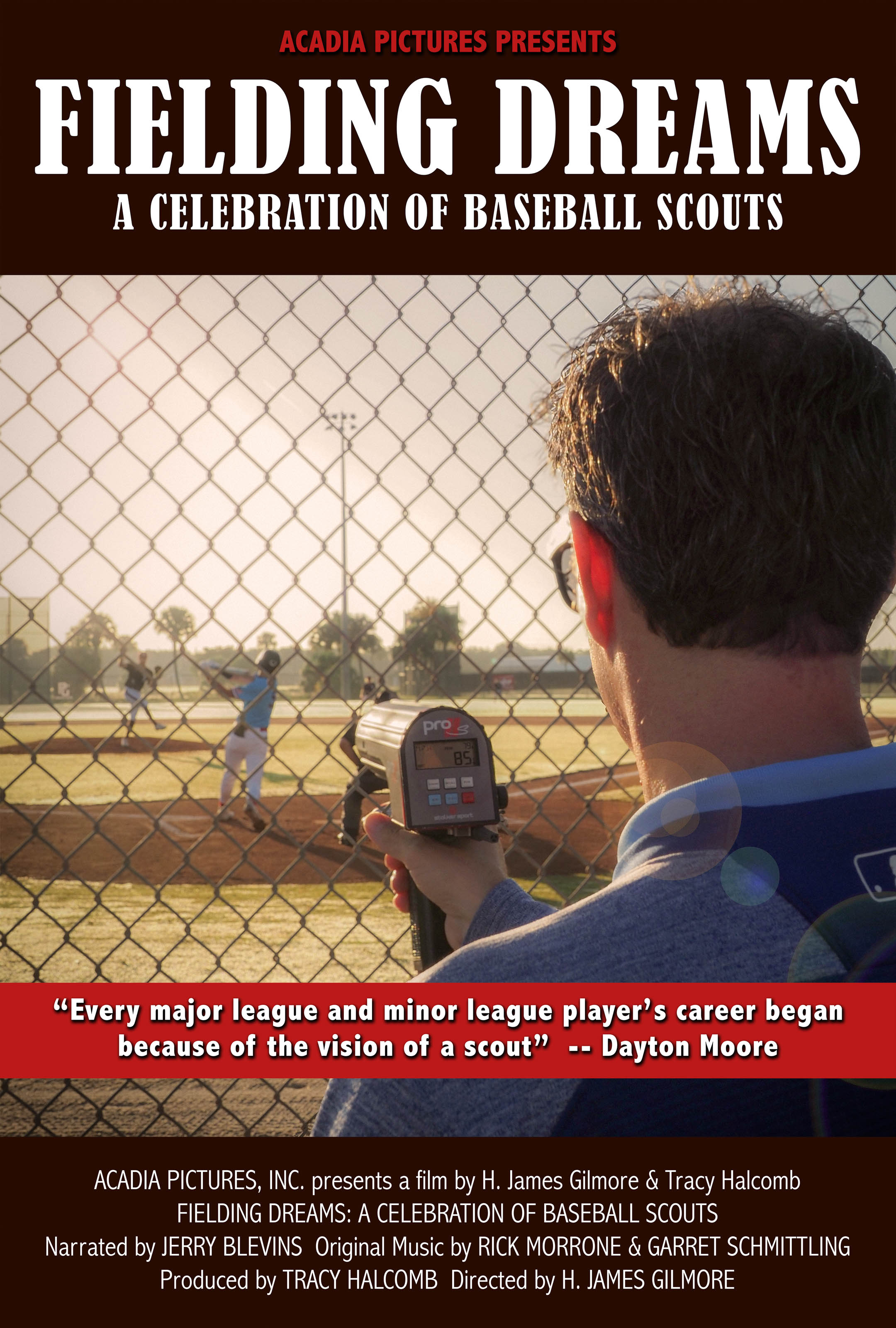
Baseball scouts are responsible for discovering and recruiting the next generation of players for each Major League team. So who is your favorite scout? If you struggle to name one, you're not alone. Unlike other roles in pro sports, the talent and dedication of scouts often goes unrecognized. Retired University of Michigan-Dearborn professor Jim Gilmore hopes to bring scouts and scouting into the limelight with his new documentary “Fielding Dreams,” which debuted earlier this year at the Baseball Hall of Fame in Cooperstown, New York.
Gilmore was a clinical professor of communication in Journalism and Screen Studies, the department now known as Journalism and Media Production. While he does not see himself as one to carve a niche in the field of sports documentaries, the success of “Cracking Aces,” Gilmore's recent film about the women of professional poker, and a family connection led him to create “Fielding Dreams.”

"I have a cousin who is a baseball scout for the Texas Rangers," Gilmore says, and this cousin's parents live right down the road from him. "Whenever he would come over, he'd always tell us these stories of the life of a baseball scout. After ‘Cracking Aces,’ I said to him, ‘Look, if you're going to keep telling these stories, I'm going to pick up a camera and I'm going to start recording, because I think it's going to be interesting,'" Gilmore says. "He was really helpful in connecting us with a bunch of other baseball scouts as well."
When Gilmore began filming for “Fielding Dreams,” he conceived of the film as a quick, fairly straightforward oral history project. "I thought this one I could crank out in a year," he recalls. "Well, we started in the summer of 2019, and all hell broke loose." The COVID-19 pandemic dramatically altered the focus of the film and, of course, took a significant toll on the work of the scouts themselves.
"They were shut down from doing their work," Gilmore says. "They couldn't go visit schools, they couldn't go to any games." So instead of being a broad film about the lives of baseball scouts, “Fielding Dreams” by necessity incorporated the impacts of a pandemic on a very specific group of professionals. But, with the worst of pandemic restrictions over, Gilmore wanted to make sure the film would be relevant to viewers today and in the future. "We wanted to make sure that COVID wasn't the focus of the documentary, but a part of the documentary," he says.
That left Gilmore with the challenge of defining the film's arc. "That came when we were doing an interview with John Odell, curator of history and research at the Baseball Hall of Fame, who was telling us that there are no baseball scouts in the Hall of Fame," Gilmore says. As it turns out, scouts are essentially the only baseball industry professionals who are not represented in Cooperstown.
"That ends up becoming the hook of my documentary," Gilmore says. "Who are these people that aren't part of the Hall of Fame, that are perhaps the most important people to the game itself?" The conversation with Odell also created the opportunity for Gilmore to debut “Fielding Dreams” at the Hall of Fame. Sadly, Odell passed away before the film's premiere, but members of his family were in attendance.
Gilmore says that he hopes his film will draw attention to baseball scouts and get some of these professionals inducted into the Hall. But even outside of being denied the prestige of Cooperstown, Gilmore says, "What I came to find out is oftentimes they're treated kind of terribly." The filmmaker spoke of scouts' working conditions: they often operate on year-to-year contracts with no job stability. "As soon as a new general manager comes in and hires a new scouting director, often that scouting team is let go. And it's not always easy to find another job," Gilmore says. He adds that the salaries scouts receive are often modest, without substantial benefits, and the toll of constant travel makes it difficult to maintain a family life. "All of these people have spent their life loving baseball," he says. “And they'll do anything to be part of the game."
UM-Dearborn’s College of Arts, Sciences and Letters played an outsized role in creating the film. Gilmore used faculty development and travel funds from the CASL Dean’s Office and elsewhere to support production. And he turned to Instructional Learning Assistant Rick Morrone, an alum and Gilmore’s former student, to design the music for the film. "Music's very hard to secure for a documentary, so in many ways, it's easier if you can get a composer to create an original score," Gilmore says. Having kept in touch with Morrone after his student's graduation and hiring him for his current position at UM-Dearborn, their collaboration seemed a natural fit.
"The score of the film is amazing. It's what makes the film sing in many ways," Gilmore says.
Following its Hall of Fame premiere, “Fielding Dreams” will make its festival debut at the Sarasota Film Festival April 5 to 14, and Gilmore is hoping to schedule a screening in Michigan as well.
In the meantime, Gilmore is working on a documentary project with students at Flagler College in St. Augustine, Florida, where he has been a visiting filmmaker since retiring from UM-Dearborn. Their film explores the history of Fort Mose, the first free Black settlement in what would become the Americas.
###
Story by Shaun Manning



